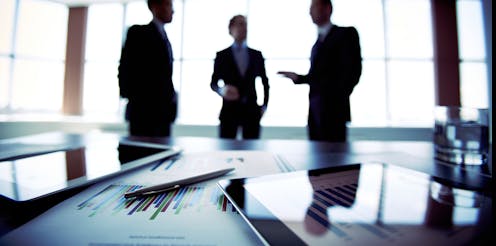Fewer than half of Australia's 150 biggest companies have committed to zero emissions by 2050
- Written by Renzo Mori Junior, Senior Advisor, Sustainable Development, RMIT University

Corporate Australia has of late become a strong voice for more action on climate change. Earlier this month the Business Council of Australia, which represents the nation’s 100 biggest companies, declared its support for the federal government committing to halving its greenhouse gas emissions by 2030, and net zero emissions by 2050.
“Business is leading,” says the report arguing this case[1]. “Domestic and international companies are rapidly adopting net zero and ambitious internal decarbonisation targets.”
That report goes on to say that among the top 200 companies listed on the Australian Stock Exchange – the ASX 200 – net-zero commitments in the past year have “more than tripled” to about 50 companies and that this represents about half the ASX200’s total market capitalisation.
Our research[2] on Autralia’s 150 biggest public companies supports the Business Council’s claim that commitments are growing. But there’s still a long way to go in showing evidence of tangible progress.
Based on disclosures made in companies’ 2020 annual reports, our research shows 17 reported having achieved carbon neutrality while 46 have either declared commitment or an intention to achieve net zero emissions.
Of those 46 companies aiming for net zero, 38 declared commitment to achieving net zero by 2050 and 15 of them disclosed their intention to become carbon neutral by 2030. Another eight companies did not set a time frame (which arguably makes the commitment meaningless).
That means just 55 have committed to zero emissions by 2050.














